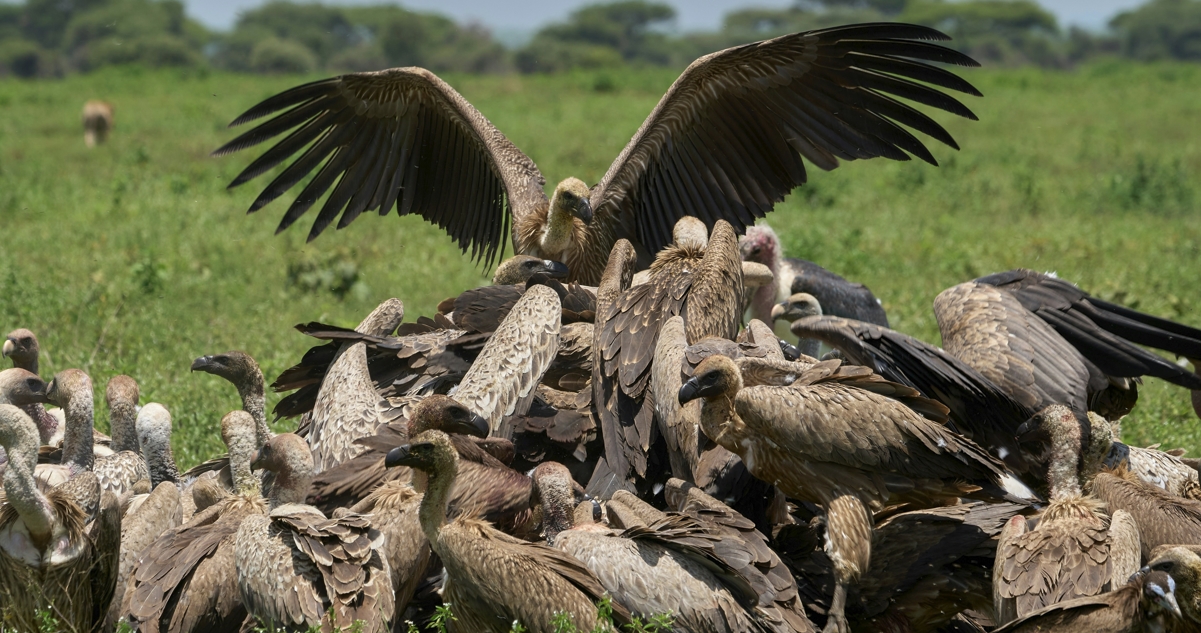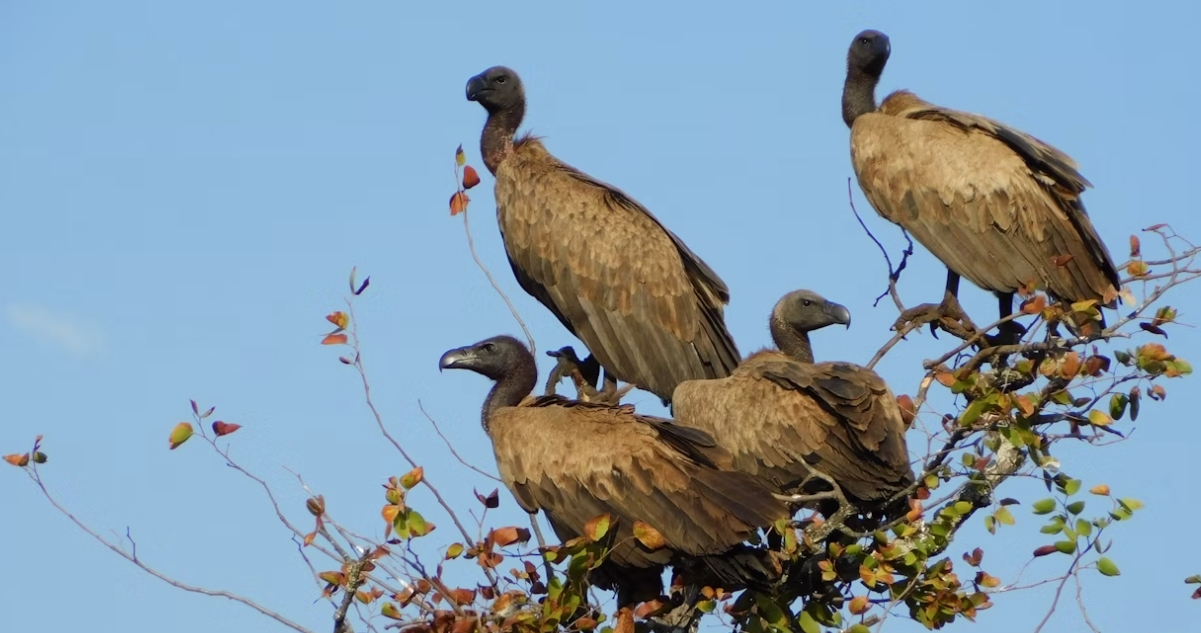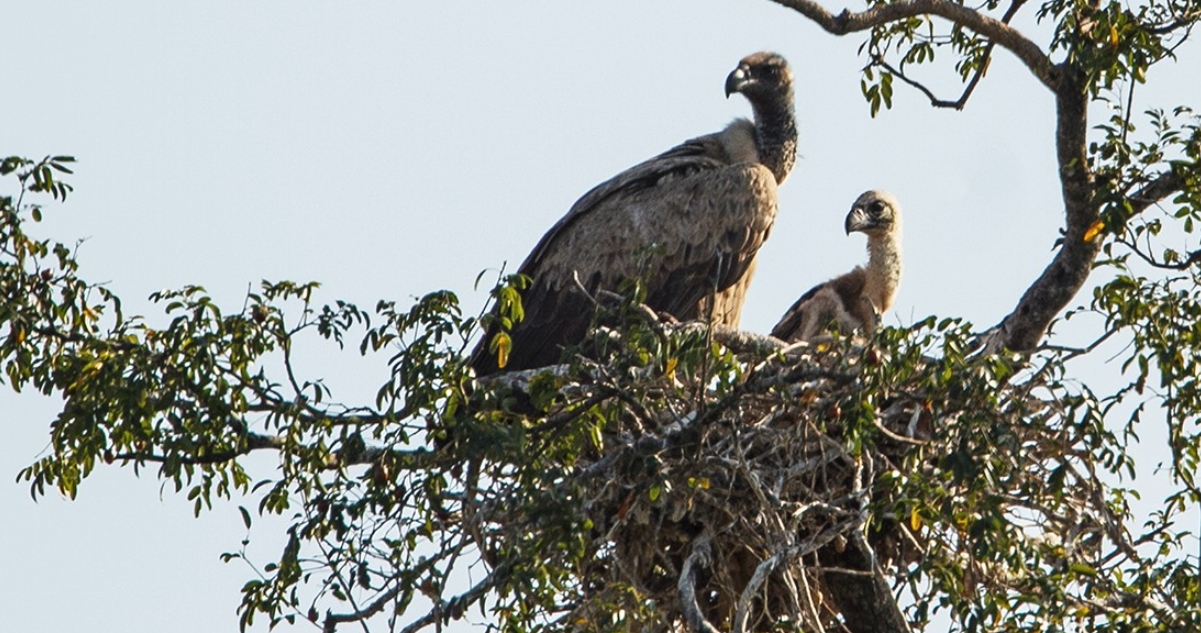
Vultures in Kenya endangered African scavenger birds
Vultures in Kenya endangered African scavenger birds, Vultures are among the largest meat-eating birds (scavengers) in the world, found on every continent except Australia and Antarctica. Kenya is one of the best places to see these incredible birds, as it is home to 4 out of the 23 vulture species worldwide. The vulture species in Kenya are as follows the White Backed Vulture, White headed Vulture, Hooded Vulture and the Rüppell’s Vulture.
These vulture species are easily spoted in major national parks and reserves across Kenya, especially in areas of Maasai Mara National Reserve. Vultures are also commonly seen in park regions in large numbers of their stock.
Two Main Types of Vultures
Vultures are grouped into two main types: Old World Vultures and New World Vultures.
- Old World Vultures are found in Africa, Europe, and Asia.
- New World Vultures mostly found in North and South America.
The main difference between the two is how they find their food. New World vultures rely mostly on their sense of smell, while Old World vultures, like those in Kenya, use their sharp eyesight to spot dead animals from long distances.
Why Vultures Are Called Nature’s Undertakers
Vultures feed only on dead animals (carcasses). Because of this, they are often linked with death and are sometimes called “nature’s undertakers.” When vultures appear, it usually means that something nearby has died.
While this may seem unpleasant, vultures actually play a very important role in nature.
How Vultures Help the Environment
Vultures are vital for the ecosystem. By eating dead animals, they help clean up the environment, preventing the spread of deadly diseases like rabies and anthrax. Without vultures, rotting carcasses would attract flies and harmful bacteria, which could make both people and animals sick.
One of the reasons vultures can eat such dangerous meat is because they have very strong stomach acid. Their stomach’s pH level is close to zero, which helps kill any harmful bacteria in the meat they eat. This protects them from food poisoning and helps keep the environment safe.
Are Vultures Endangered?
Although vultures don’t have many natural predators, they are still considered endangered. The main threats to their survival are caused by humans. These include:
- Habitat destruction due to land use changes
- Poisoning from chemicals in livestock carcasses
- Cultural practices that involve hunting or harming vultures
In places like the Maasai Mara, vultures are at high risk because they often feed on poisoned animal remains.
Interesting Facts About Vultures
- Vultures are bold and fearless. They are not afraid of people and can often be seen in busy areas or near wildlife.
- They are commonly found near slaughterhouses, landfills, and garbage dumps, where they look for food.
- Vultures have bald heads with very few feathers. This helps keep them clean, especially when they stick their heads deep into carcasses. If they had feathers on their heads, they could easily get infected by bacteria from the meat.
So while some may think vultures look unattractive, their bald heads actually help keep them healthy – and the healthier vultures are, the better for our environment.
Why Travel with Aga Safaris?
Aga Safaris is a trusted and experienced tour operator offering amazing safari experiences across East Africa. We organize trips to Kenya, Uganda, Rwanda, Tanzania, Ethiopia, Burundi, South Sudan, Zanzibar, Madagascar, the Democratic Republic of Congo, and more.
You can contact us any time to plan a trip that suits your needs. We offer custom-made safaris, including:
- Big Five wildlife safaris
- Gorilla trekking adventures
- Cultural and birding tours
- Mountain hiking and climbing experiences
- Beach holidays and filming safaris
Our team is highly experienced and passionate about African travel. When you book with us, you’re guaranteed a safe, memorable, and personalized experience. Just reach out, and we’ll be ready to assist you in exploring the beauty and wildlife of Africa.





